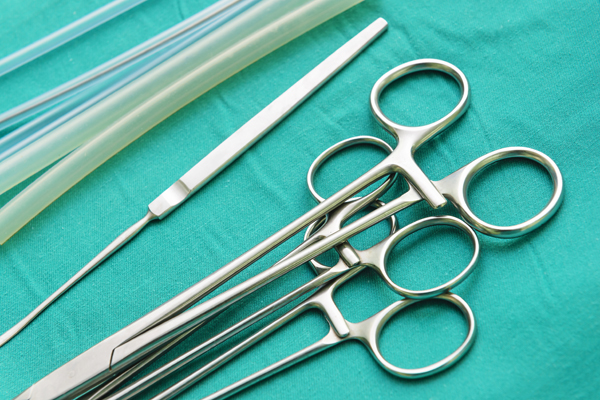A tool that uses water and ultrasonic waves to disinfect medical devices, has been developed by researchers at the University of Southampton. The device promises to reduce the presence of contaminants on medical instruments, thereby lessoning the risk of infection.
StarStream is a device that is being commercially produced by Ultrawave Ltd., through a patent secured by the University of Southampton. The device uses a stream of water – containing bubbles and ultrasound waves – to clean a variety of medical tools.
The bubbles are able to scrub the surface of the tool, which reduces the need for additional cleaning solutions and the application of heat. StarStream is capable of removing biological contamination – including brain tissue – from stainless steel, using cold water alone.
Cleaning instrumentation between patients is not only important to reduce transmission of bacteria and viruses, but also to eliminate potentially damaging misfolded proteins – known as prions – that can cause illnesses such as Creutzfeldt-Jakob Disease. The cleaning device was also able to eliminate hard-to-clean bacterial biofilms, which can lead to the development of cavities and other dental diseases.
In addition, StarStream was able to remove the soft tissue from bones prior to transplant, in order to decrease the risk of transplant rejection as a result of an immune response mounted by the transplant patient.
“In the absence of sufficient cleaning of medical instruments, contamination and infection can result in serious consequences for the health sector and remains a significant challenge,” said Professor Tim Leighton, Principal Investigator for the study from the University’s Institute of Sound and Vibration Research. “Our highly-effective cleaning device, achieved with cold water and without the need for chemical additives or the high power consumption associated with conventional strategies, has the potential to meet this challenge and transform the sector.”
The results of the study were published in the journal Physical Chemistry Chemical Physics, with financial support from the Royal Society Brian Mercer Award for Innovation. Leighton and his colleagues have been the recipients of numerous awards for StarStream, including ‘Best New Product of the Year’ from S-lab, and the Institute of Chemical Engineering Award for Water Management and Supply, in 2012.
“We are very grateful to the Royal Society Brian Mercer Fund (who granted their 2011 Award for Innovation jointly to myself and Dr. Peter Birkin) for giving us the opportunity to use fundamental research to prove the effectiveness of StarStream, whilst at the same time exploring ways to commercialize it,” said Leighton. “Commercialization is vital: if we cannot build a business that can sell thousands of these to health providers at a price they find attractive, this invention will stay in the laboratory and help no-one.”
Sources:
- Using ultrasound to clean medical instruments – http://www.fiercemedicaldevices.com/press-releases/using-ultrasound-clean-medical-instruments












Join or login to leave a comment
JOIN LOGIN